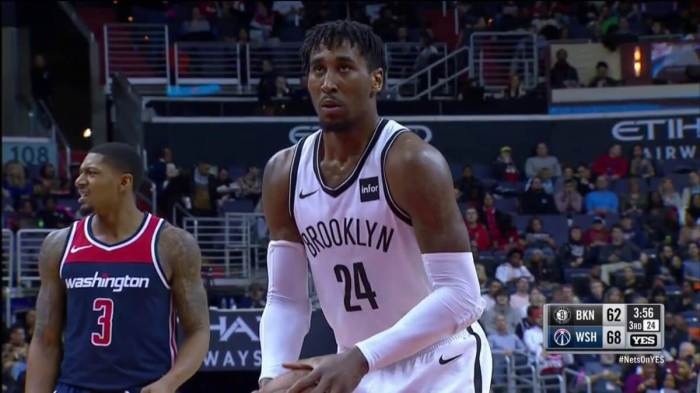Let me preface this all by saying I believe Devin Harris had a decent season, but that doesn’t make his overall performance any less disappointing. One of the team’s two lynchpins headed into the season along with Brook Lopez, Harris was poised to be the clear-cut go-to guy on offense coming off his career season in 2008-09. But it was clear early in the season that Harris was not going to replicate his magic from the year before. Between his assorted injuries, and the lack of a second offensive weapon at one of the wing positions, Harris saw his scoring output and shooting take a hit, raising the legitimate question of whether or not he’s expendable if the team can land Kentucky PG John Wall in the draft this summer. That is why he’s the recipient of NAS’s “Most Disappointing Player” award.
Continuing a trend from his first half season in New Jersey, Harris missed a good chunk of the season with assorted injuries. Overall, he missed 18 games, the most crippling of which came in a three-week stretch in November which contributed greatly to the team’s historic 0-18 start and the dismissal of coach Lawrence Frank. It then took Harris a few months into the season before he even demonstrated flashes of being the scoring threat he as on 08-09. A wrist sidelined him in January, limiting him to only 9 games where he averaged 12 points per game on 36 percent shooting. When he returned in February, he averaged 2.3 points on 41 percent shooting, along with 9 assists per game. But his number dropped off again in March and April, though he did have his best shooting month in April, hitting on 45 percent of his field goals.
Looking at some overall metrics, Devo’s Player Efficiency Rating (PER) plummeted from the year before, from 21.65 to 16.28. This even defied some of Harris’ more bearish critics. ESPN’s John Hollinger, who predicated before the season started that Harris was a prime candidate for decline this season, projected Devo with a PER of 19.3. At 16.28, he ranked 22nd at PG in PER, hardly the sign of a game-changer at the position.
It’s pretty easy to figure out why Harris’ percentages dropped. He just wasn’t able to score the way he used to. His points per 40 minutes dropped from 23.6 to 19.5 while he finished with a career low in true shooting percentage of 51.2, down from 56.3 percent in 08-09. His ability to get to the free throw line also declined (or maybe he just didn’t get the calls he once did). He averaged 2.3 field goals for every free throw attempt this past season, compared with 1.8 field goals for every FT the year before. Meanwhile, he finished with a career low field goal percentage on his shots at the rim – 53 percent, compared with 56 percent the ear before.
Devin’s performance has created an interesting predicament for the Nets front office. If the Nets get lucky with the lottery and have an opportunity to take John Wall number one, is Harris worth trading? His value is at an all-time low, which means the team would likely have to accept another team’s financial headache (rumors of a Harris for Caron Butler deal earlier this season are a good example of Devo’s value right now). Then there’s the idea that Wall might not be experienced enough to run the point full-time for an NBA team, but Magic Johnson, a guy who knows a thing or two about PGs, believes whoever gets Wall, has to give him the keys to the car right away. Besides, a good veteran backup PG could more than fulfill the mentor role for Wall, along with the right coach (as much as it pains me to say this, Wall’s coach at Kentucky, John Calipari has a pretty good track record with PGs with Tyreke Evans and Derek Rose being two of his disciples). Is a Devin Harris/John Wall backcourt really what’s best for the organization? A better 09-10 from Harris would have made this question easier to ignore.


















